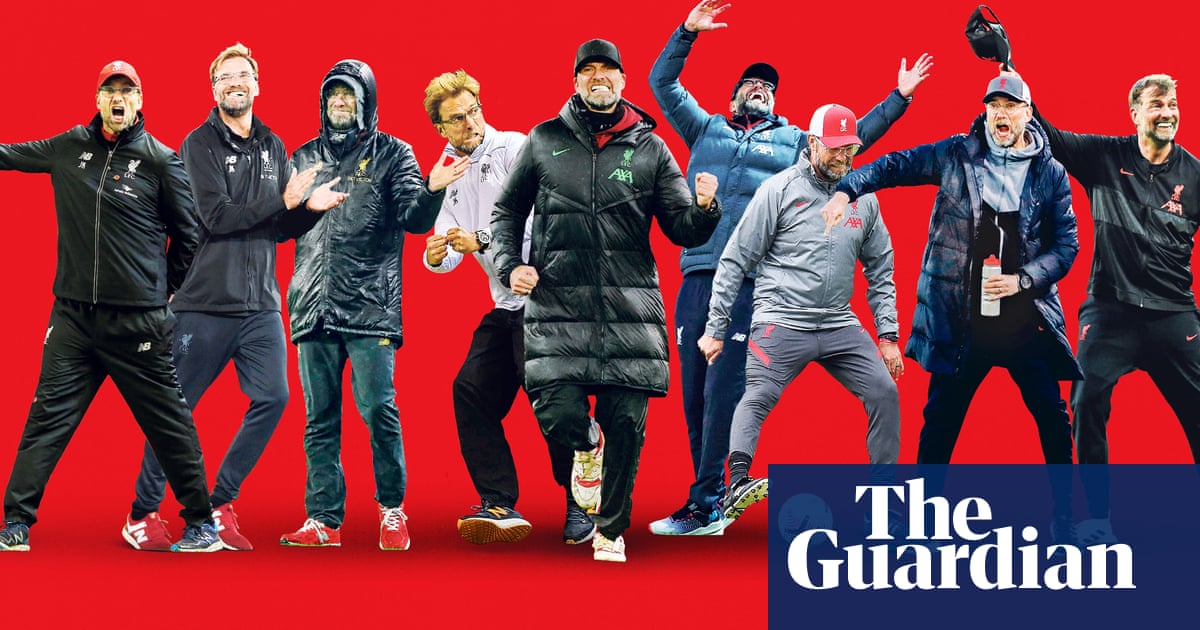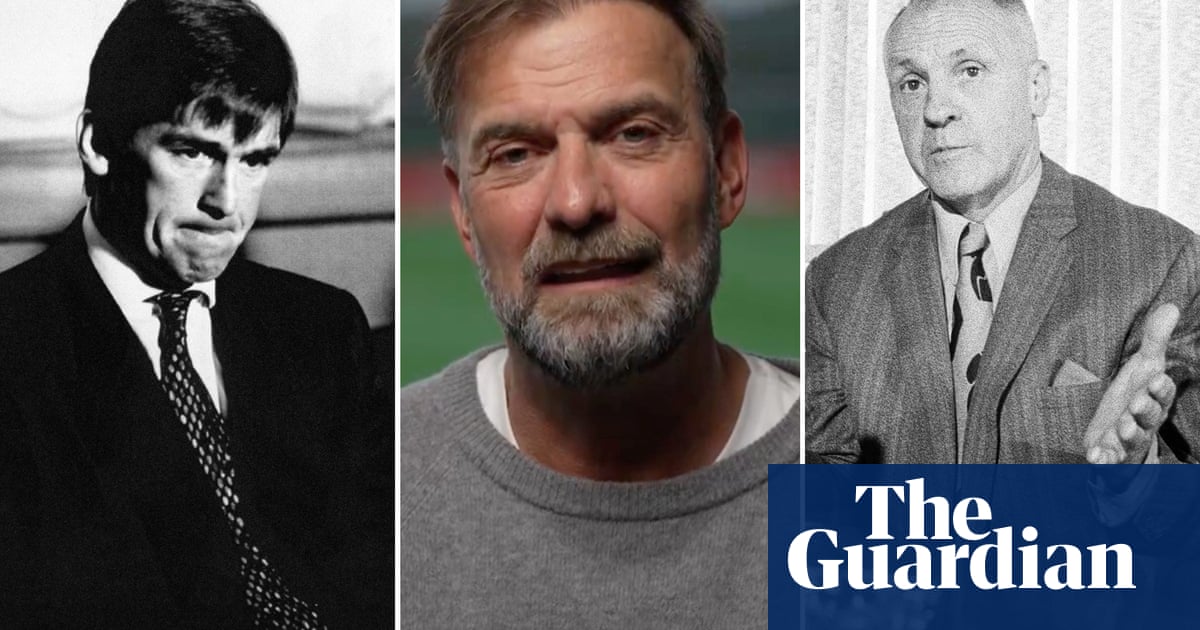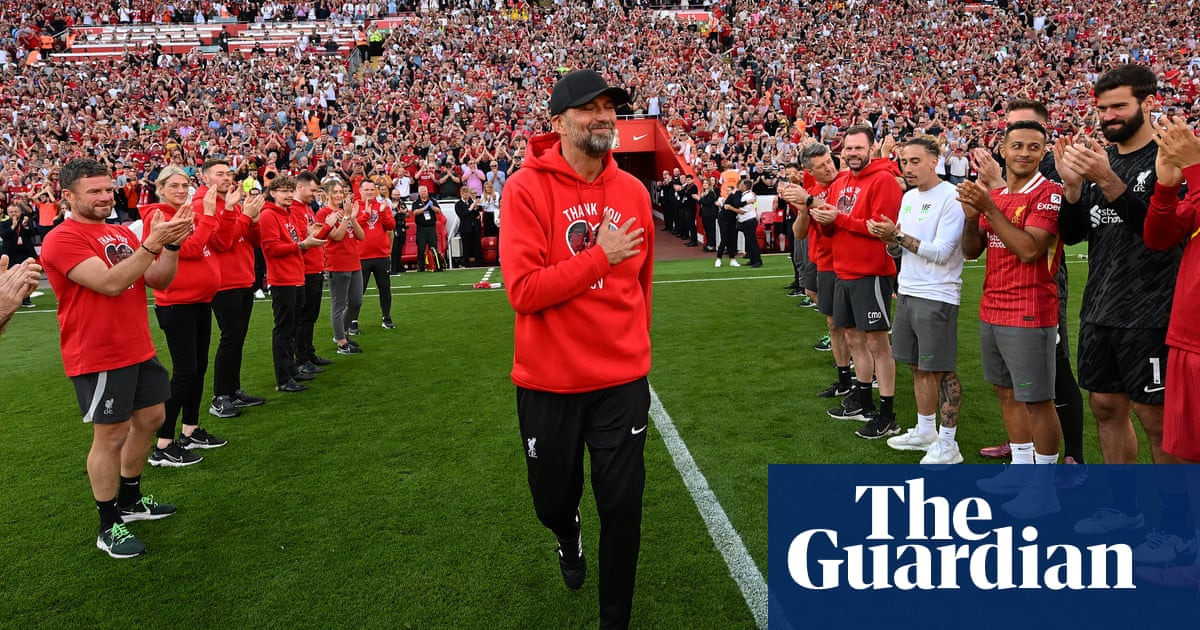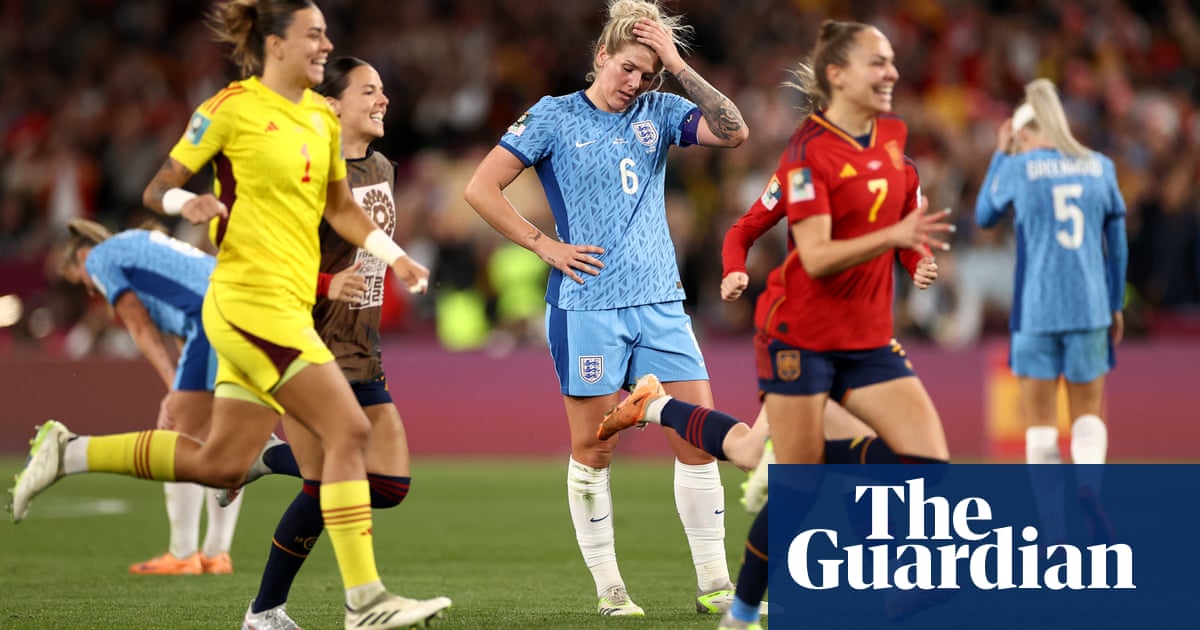
To the very end, Jürgen Klopp’s sense of theatre never left him. The little pregnant pause at the start of the video where he announces his departure, when everyone knows what’s coming but still wants to hear him say it out of his own mouth. The way his voice cracks and breaks. The way he stares straight down the camera, so you can’t look away. And of course the immaculate timing, the disorienting flourish, a sense of pure shock that will reverberate through the last four months of this season. One last mind game. One last competitive edge. For Klopp the business and the pleasure of football were always symbiotically linked, one in the service of the other.
This was the talent, and these were the convictions, that could hold a dressing room, an auditorium or a stadium in the palm of his hand. In a foreign country, and in his second language, he forged lasting connections in this most entropic and acrimonious of sports. He changed the way people thought of one of England’s most maligned cities. To this day Christian Benteke – a striker whom Klopp never remotely rated, played as little as possible and sold to Crystal Palace at the first opportunity – describes Klopp as “the best manager I ever worked with”. This too is talent, and it also tells you pretty much everything you need to know about Jürgen Klopp.
He was the man who won it all, who took over one of this country’s punchline clubs at a time when their reputation was probably lower than his, and made them serious again. When he joined in 2015, the average attendance at Anfield was roughly the same as Sunderland’s. He inherited a squad containing Steven Caulker, Joe Allen and Lazar Markovic, rebuilt it, won the Champions League within four years, and then rebuilt it again. He won Liverpool the league title that fans had convinced themselves over 30 years they would never reclaim. But this is not how Klopp will be remembered.
He was the coach who brought his inimitable brand of heavy-metal, counterpressing football from Dortmund to the Premier League and then moulded it for a rapidly evolving modern game. Klopp’s teams aged and matured as he did. Over time they grew more controlled, more possession-dominant and more intricate, less chaotic, less reliant on the counterattack and less contingent on grand surges of emotion. He borrowed a little from Pep Guardiola and in turn Guardiola borrowed a little from him. Their eight-year double act generated some of the finest football, and some of the finest football matches, seen on English pitches. But this is not how Klopp will be remembered either.
He was the coach who turned bruised, raw or unproven talent into the envy of the world through a combination of elite scouting, elite coaching and elite interpersonal skills. Alisson, Virgil van Dijk, Mohamed Salah, Trent Alexander-Arnold, Sadio Mané, Andrew Robertson: all good or very good players who became generational greats under his tutelage. He believed steadfastly in giving young players a chance, not as a way of fattening up valued assets for the books, but because it was the most efficient way of creating the heroes of the future. At Fulham on Wednesday, with time running out and the tie on a knife-edge, he threw on an 18-year-old called Bobby Clark and said: go on, win us a cup semi-final. Klopp believes in Clark and so Clark cannot help but believe in himself. But this is not how Klopp will be remembered either.
Because in the real world, where real people live, this is not really how football is remembered. All that will really endure from those years of toil is the human moments, the flesh-and-bone moments when Klopp and his team reached through the fourth wall and made you feel. The much-ridiculed curtain call after a 2-2 draw against West Brom. The broken glasses against Norwich. The magnificent bender after Kyiv. The way Anfield sounded on the night they beat Barcelona 4-0 or destroyed Manchester United 7-0, where you were, who you were with.
Football has never been purely an intellectual exercise and it has never been purely a professional pursuit. At its best it is the background music to life, the backdrop to nights in and nights out and comedowns and breakdowns and hook-ups and break-ups. Not everybody in the navel-adoring world of football really gets that. Somehow, you always felt Klopp did. Liverpool are not my club and Klopp has never been my manager, but perhaps the greatest tribute you could pay him is that sometimes I wished he was.
And yet, as a competitor to his core Klopp always realised that there was little point in making people feel good unless you could also do good. His work with the club foundation, the way he would carve time out of his schedule to meet disabled or elderly fans, made irresistible online content but also came from a sincere and genuine place. “All of us have to do whatever we can to protect one another,” he wrote to Liverpool fans in March 2020, as the nation prepared to lock down. “In society, I mean. This should be the case all the time in life, but in this moment I think it matters more than ever. Please look out for each other.”
Klopp was never the Shankly-esque socialist as his most ardent fans liked to claim. You only had to examine his vast array of commercial endorsements to grasp that. Nor did he ever seek to position himself as a beacon of virtue. Indeed some of his most unattractive moments came when he lapsed into self-pity, railed vituperatively at slights real or imagined, complained bitterly about 12.30pm kick-offs in a world where people were struggling to heat their houses. But somehow, whether by design or by projection, he did come to represent a kind of resistance: putting the human being back in the machine, the idea that superior wealth and autocratic power could be overcome through the ingenuity of collective spirit. Like Arsène Wenger before him, it was often hard to parse his opposition to state investment or fixture overcrowding from self-interest. But most of the time, he fought the right fights.
And so as well as all the justified celebration of his Liverpool career, there must also be a note of melancholy too. Did Klopp ultimately get what he came for? One Premier League, won under sterile pandemic conditions. One Champions League, won in a substandard final courtesy of a questionable penalty. One FA Cup and one League Cup, each won on penalties after a 0-0 draw against Chelsea. Meanwhile, the wider landscape of football that Liverpool strove so ardently to disrupt remains largely in place. Manchester City have won five of the last six titles, Chelsea can still outbid them for the best young players and now Saudi money is unbalancing the playing field again. Liverpool scrumped some apples. But it’s still not their orchard.
Which is why the next four months, and the way Liverpool negotiate them, still matters. They will be months of feverish distraction and disinformation, as both Klopp’s next move and Liverpool’s are discussed in unhealthy detail. There will be a long, protracted and excruciating farewell tour, memes and montages and memories. But there will also be one last tilt at the title in a league in which Liverpool are five points clear with a resurgent City charging them down. Klopp has known enough unhappy endings in football to shake his belief in happy endings for ever. But he still believes in this one. It is, in many ways, his greatest act of faith yet.












